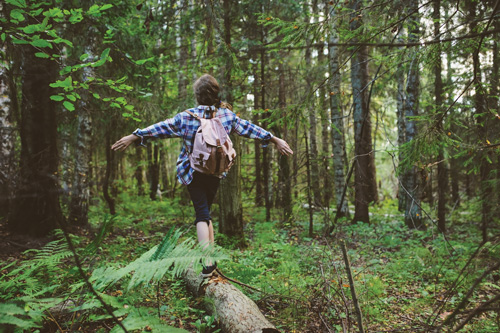
by Richard Irvine
author of Wild Days and Forest Craft
This very strange year has seen many of us desperate to take whatever opportunities we can to be outdoors, exploring our local neighbourhoods. Wilderness might not always be on the doorstep, but little bits of wild nature can be found everywhere – whether you live in a bustling city or its suburbs, or close to farms, forests or the coast. There are adventures to be had in parks, on city streets, canal tow-paths, riverbanks, beaches, woods, moorland and country walks.
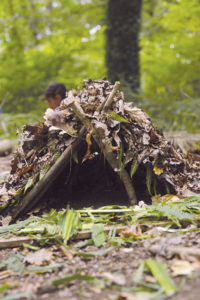 All that is needed is a bit of curiosity, a playful attitude and maybe a tiny bit of know-how. Paying attention to the ordinary and everyday that might have escaped our notice for years, can open the door to tiny adventures close to home. Outdoor play is not just a ‘nice to have’, it is essential for children to experience the world to learn about it and their place in it.
All that is needed is a bit of curiosity, a playful attitude and maybe a tiny bit of know-how. Paying attention to the ordinary and everyday that might have escaped our notice for years, can open the door to tiny adventures close to home. Outdoor play is not just a ‘nice to have’, it is essential for children to experience the world to learn about it and their place in it.
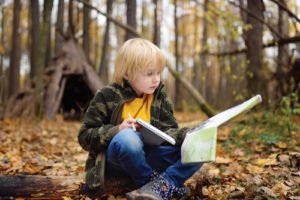 Learning about our neighbour-hood nature connects us to where we live and makes us feel more at home. The more time spent outdoors, the more you notice the patterns of the changing seasons; get to know the sights, sounds and smells of your local wildlife; and enjoy ‘slow time’ as you lose yourself in the fascination of nature. Creativity, resilience and positive attitudes towards the environment and exercise are forged in outdoor play. Understandable fears of busy roads and encounters with strangers can make parents and carers feel anxious about letting their children and young people play out of sight but it is vital that all young people have opportunities for unstructured outdoor adventures.
Learning about our neighbour-hood nature connects us to where we live and makes us feel more at home. The more time spent outdoors, the more you notice the patterns of the changing seasons; get to know the sights, sounds and smells of your local wildlife; and enjoy ‘slow time’ as you lose yourself in the fascination of nature. Creativity, resilience and positive attitudes towards the environment and exercise are forged in outdoor play. Understandable fears of busy roads and encounters with strangers can make parents and carers feel anxious about letting their children and young people play out of sight but it is vital that all young people have opportunities for unstructured outdoor adventures.
A simple walk in the park can be transformed into an engaging, playful experience with a mission to collect materials to make natural art or to make a wreath at home. A bit of string and some twigs can be transformed into boats to sail on the pond or canal with ‘jelly baby’ passengers to keep safe and dry if possible. Playing Pooh sticks, racing marbles down a hill and just gazing up at the clouds can turn reluctance into enthusiasm when it comes to getting children outside.
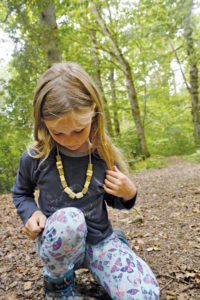 On your wild days out, it is very important to remember that the world is not a playground for humans but the habitat for us and all other living things. At the very least, we should try and leave as little trace of our activities as possible. It would be fantastic if we could leave things in an even better state than we found them and to have a positive impact on our environment.
On your wild days out, it is very important to remember that the world is not a playground for humans but the habitat for us and all other living things. At the very least, we should try and leave as little trace of our activities as possible. It would be fantastic if we could leave things in an even better state than we found them and to have a positive impact on our environment.
To be safe in the world, young people need to be allowed to take risks. If they grow up insulated from potential harm, they may find it difficult to assess what is safe or dangerous for themselves and not learn to ask the important “What if…” questions that help us to consider the consequences of our actions and to make good decisions. Some of the best childhood adventures can involve fires, tools and the chance of getting lost, but all can be undertaken safely with trust, practice and common sense. You know your young people and context. My plea is to let them explore, play and experiment under the open skies. Join in alongside or keep an eye from a distance but try to relax, enjoy being outside with them and remember that the benefits of outdoor play and adventure will stand them in good stead for the challenges ahead.
Richard Irvine is a qualified teacher with a love of the outdoors and over 20 years’ experience in the field of outdoor learning. His specialist knowledge of woodlands and practical education comes from a love of the outdoors and many years working for forestry and education organisations. An accomplished greenwood carver, he brings woodcraft into his work wherever possible through progressing children’s skills at Forest School and running professional development workshops and recreational carving days for adults.
He is the author of Wild Days and Forest Craft from GMC Publications. He lives in Devon.

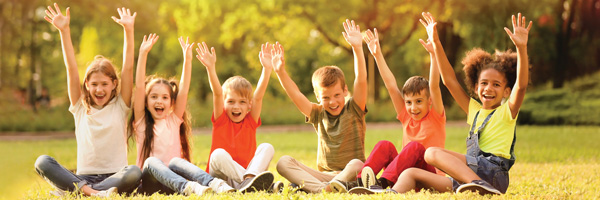
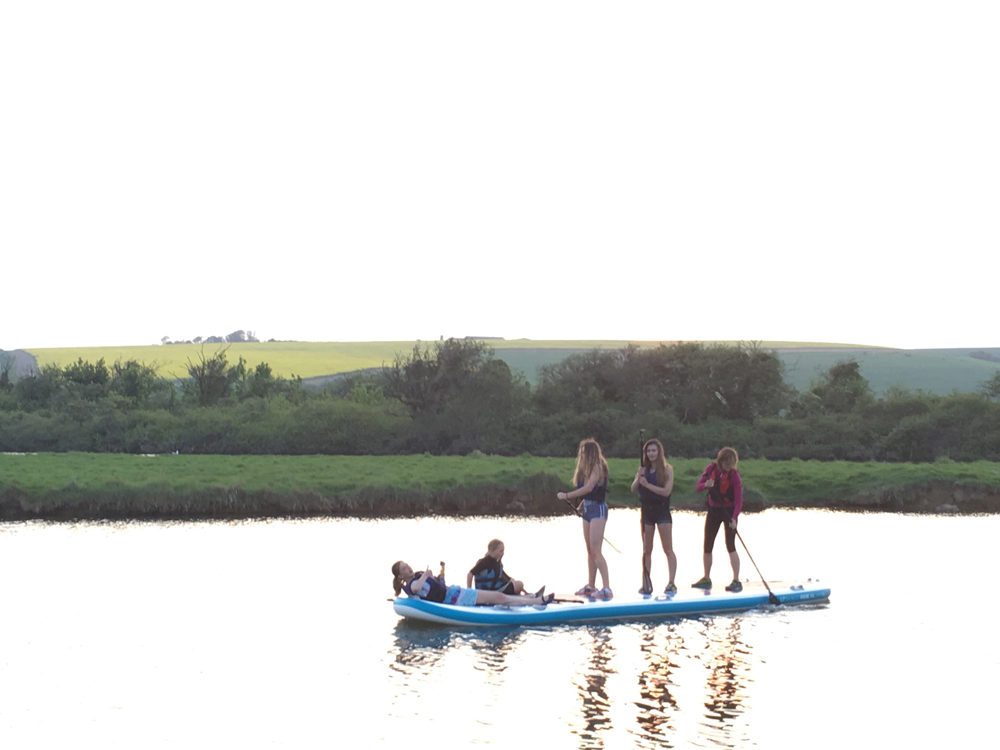
 To help more young people benefit from the transformational power of travel and adventure, YHA has launched a campaign – The Adventure Effect. It hopes the campaign will inspire young people and their families to get outdoors.
To help more young people benefit from the transformational power of travel and adventure, YHA has launched a campaign – The Adventure Effect. It hopes the campaign will inspire young people and their families to get outdoors.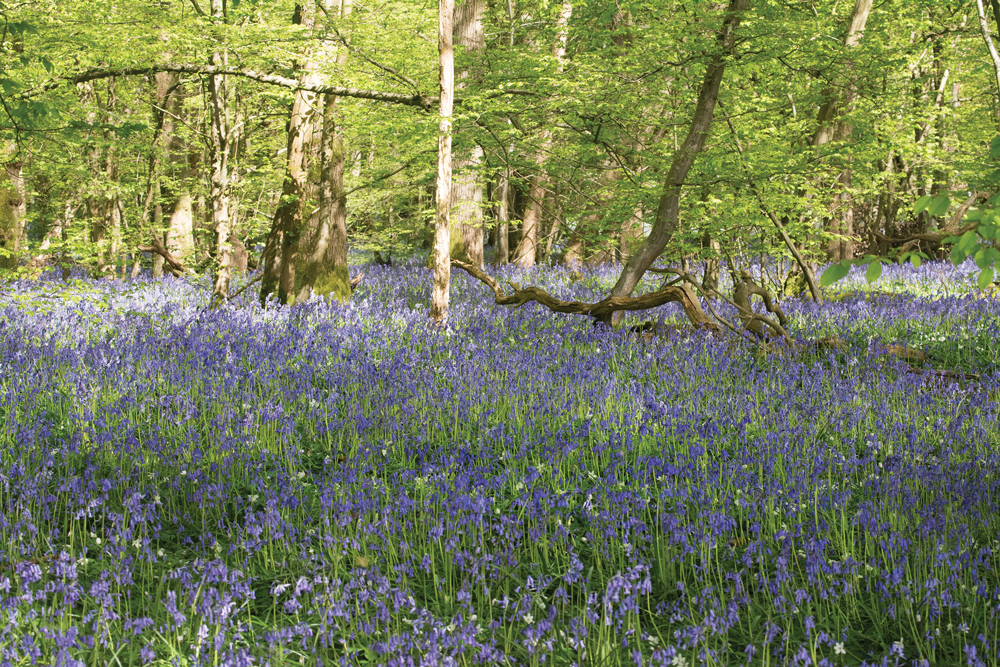
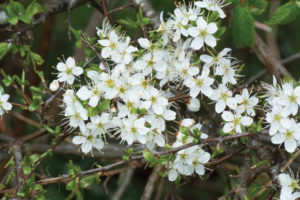 Sussex and Surrey have an abundance of woodlands – here the flowers appear early in the year when the ground has warmed up and it is light. Once the leaves on the trees have come out, the woods become too shady for most flowers to grow. Plants that take full advantage of the brighter spring conditions include wood anemones, bluebells, primroses, common dog-violets and lesser celandines. Of all these, perhaps the bluebell puts on the most impressive display, for few wild flowers cover the ground so completely or smell as sweet. Chinthurst Hill near Wonersh, Brede Hill near Battle, Heaven Farm near Uckfield and Angmering Woods near Arundel, all put on annual bluebell spectaculars along with a medley of other spring flowers.
Sussex and Surrey have an abundance of woodlands – here the flowers appear early in the year when the ground has warmed up and it is light. Once the leaves on the trees have come out, the woods become too shady for most flowers to grow. Plants that take full advantage of the brighter spring conditions include wood anemones, bluebells, primroses, common dog-violets and lesser celandines. Of all these, perhaps the bluebell puts on the most impressive display, for few wild flowers cover the ground so completely or smell as sweet. Chinthurst Hill near Wonersh, Brede Hill near Battle, Heaven Farm near Uckfield and Angmering Woods near Arundel, all put on annual bluebell spectaculars along with a medley of other spring flowers.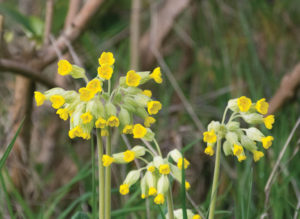 a captivating appeal for many people and to discover one is thrilling. Ditchling Beacon and Malling Down are excellent places to search for them. Look out now for the early purple orchid – its clusters of flowers, long spotted leaves and unpleasant smell help to identify it – and come back in the summer for more orchid spotting.
a captivating appeal for many people and to discover one is thrilling. Ditchling Beacon and Malling Down are excellent places to search for them. Look out now for the early purple orchid – its clusters of flowers, long spotted leaves and unpleasant smell help to identify it – and come back in the summer for more orchid spotting.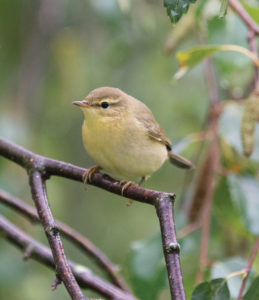 There is no better season for listening to bird song and often the adventures begin by simply opening a window! Every habitat has its own star performers with some having flown vast distances to be with us. If you want to hear some outstanding virtuosos then head to heathlands such as Chobham, Pirbright, and Iping and Stedham Commons. Here you may hear (if not see) buzzy Dartford warblers, melodious willow warblers or perhaps a chirring nightjar or two. Even more discrete than these birds are the nightingale – its drab, brown colouring making it almost impossible to spot in the dense undergrowth it inhabits. Its song, though, is unmistakable and the male sings both day and night until it finds a mate. Make your way to Ebenhoe Common, Pulborough Brooks and Puttenham Common for an unforgettable auditory experience. Make a note of International Dawn Chorus Day which is on Sunday 2nd May this year. Events are usually planned by a range of local wildlife groups.
There is no better season for listening to bird song and often the adventures begin by simply opening a window! Every habitat has its own star performers with some having flown vast distances to be with us. If you want to hear some outstanding virtuosos then head to heathlands such as Chobham, Pirbright, and Iping and Stedham Commons. Here you may hear (if not see) buzzy Dartford warblers, melodious willow warblers or perhaps a chirring nightjar or two. Even more discrete than these birds are the nightingale – its drab, brown colouring making it almost impossible to spot in the dense undergrowth it inhabits. Its song, though, is unmistakable and the male sings both day and night until it finds a mate. Make your way to Ebenhoe Common, Pulborough Brooks and Puttenham Common for an unforgettable auditory experience. Make a note of International Dawn Chorus Day which is on Sunday 2nd May this year. Events are usually planned by a range of local wildlife groups.


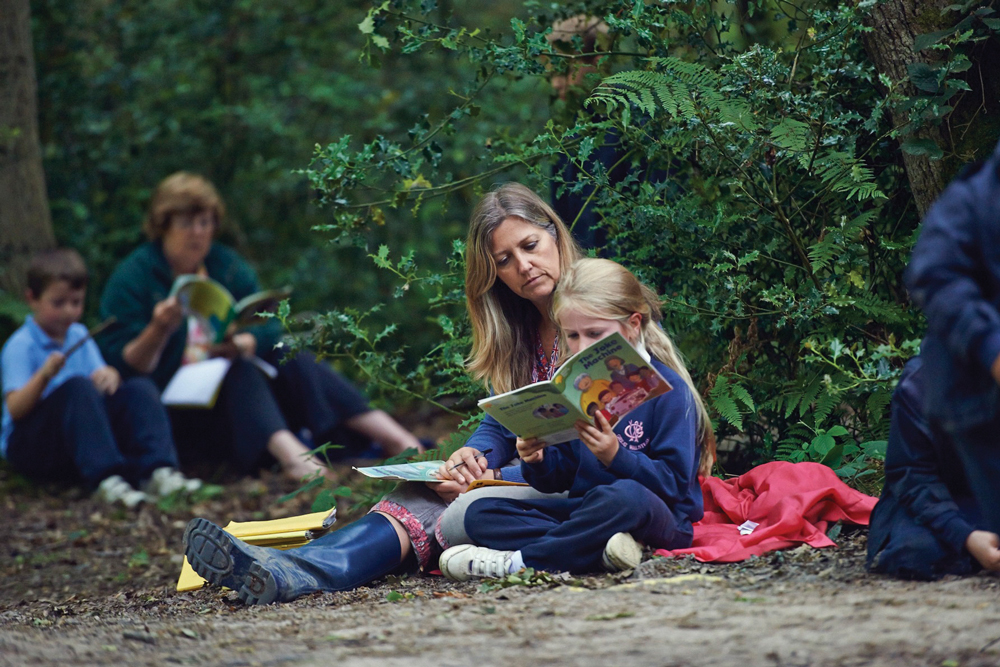

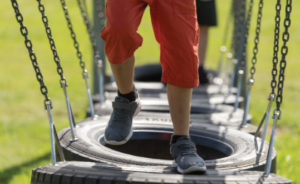 eep active and keep healthy
eep active and keep healthy










